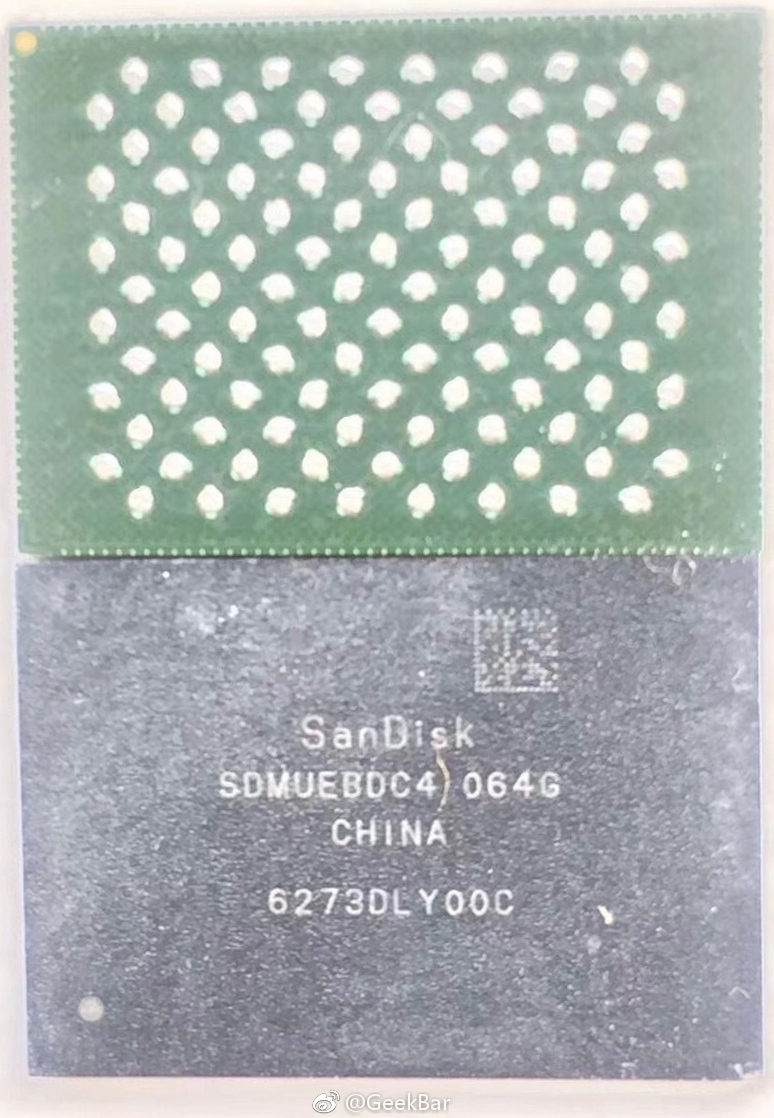
Apple’s upcoming iPhone 8 will reportedly be offered in storage capacities of 64GB, 256GB and 512GB. All three models will also come equipped with 3GB of system memory according to a recent post on Chinese microblogging site Weibo (China’s version of Twitter).
The current-generation iPhone 7 and iPhone 7 Plus are available in 32GB, 128GB and 256GB capacities. The smaller handset ships with 2GB of RAM while the larger Plus variant packs 3GB.
The Weibo post originated from a user by the name of GeekBar. The user also included an image of an alleged 64GB SanDisk NAND flash module destined for the iPhone 8. According to Mac Rumors, this is the first time SanDisk has been referenced as a supplier of NAND flash chips for Apple’s OLED iPhone.
The publication notes that SanDisk is expected to supply 64GB and 256GB chips alongside Toshiba. Samsung and SK Hynix, meanwhile, are reportedly being tapped for 512GB chips.

Samsung on Wednesday unveiled its next flagship, the Galaxy Note 8. That phablet will offer just 64GB of storage in the US (international buyers will have access to 128GB and 256GB models) although a microSD card slot adds a lot of local storage flexibility.
Large-capacity models could give Apple a reason to command more money for its high-end iPhone, a situation that’s seemingly becoming the norm these days among flagships. Samsung’s aforementioned Galaxy Note 8, for example, will set you back a minimum of $930 (from T-Mobile). Rumors have suggested Apple may charge well over $1,000 for its OLED iPhone.
https://www.techspot.com/news/70698-apple-oled-iphone-8-reportedly-offered-64gb-256gb.html